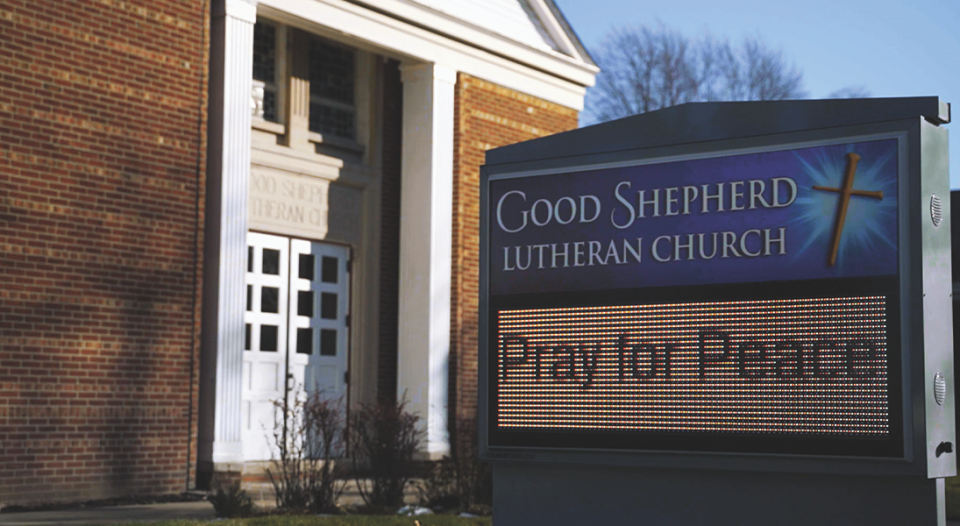The already-declining membership and budget at Good Shepherd Lutheran Church in Royal Oak, Mich., took another hit as the deadly COVID-19 pandemic got a toehold in the area. The coronavirus caused the church to temporarily close the building to its 300 members and offer services on recordings.
“We have not lost many people during the pandemic, but the financial income continues to trend downward,” said Krister Ulmanis, pastor of Good Shepherd.
Member giving plummeted from $225,697 in 2011 to $148,709 in 2020, he said, adding that over the past five years, there has been a budget deficit as high as $53,000 that has been approved.
“Through tight financial management we have managed to keep the actual deficit each year to between $10,000 to $15,000,” Ulmanis said. “This has been covered by designated funds [and] investments, which have now been reduced to the point that this is no longer an option.”
The financial decline accelerated as most of the active and financially supportive members began living on fixed incomes in retirement. From 2019 through 2020, the congregation lost 11 donors.
In addition, people who donate $1,500 or less per year make up more than 50% of the congregation’s total giving, “which is not sustainable even for the minimal budget that we operate with currently,” Ulmanis said.
But as bleak as the situation appeared, shuttering the church was never an option.
“Our regular bank told us point-blank that we could apply but there would be no guarantee that they would even review our application.”
Ulmanis and the leadership team at Good Shepherd discussed applying when they first heard about the Paycheck Protection Program (PPP). Part of the Coronavirus Aid, Relief, and Economic Security (CARES) Act passed in March 2020, the program provides small businesses with funds to cover up to eight weeks of payroll and applicable overhead costs. But as the discussion wore on, Good Shepherd missed out on the first round of availability. When the second round began, leadership went to the church’s regular bank to ask if they could apply.
“Our regular bank was slow to respond, but when they did respond, they told us point-blank that we could apply but there would be no guarantee that they would even review our application,” Ulmanis said. “This was discouraging news for the congregation.”
Ulmanis has personally banked with the ELCA Federal Credit Union and heard that it was processing PPP loans through the ELCA Mission Investment Fund (MIF). He suggested that congregation leaders try this route. They applied and were met with staff who worked with them throughout the entire process.
“We felt very good being treated with the courtesy given us, and the help provided,” Ulmanis said. “The ELCA credit union and MIF were truly ministering to our congregation in our time of financial need.”
The church received $23,990, which was used to pay utility bills and salaries for a three-quarter-time pastor, a part-time administrative assistant and a part-time organist.
“There is no doubt the PPP loan through the ministry of the ELCA credit union and MIF was truly a lifeline for the congregation,” he said. “This was great news for the parishioners, as those who are attending are extremely dedicated to the congregation.”
Successful collaboration
During the first round of PPP funding in 2020, MIF began hearing from many customers and other ELCA ministries about the difficulties they encountered in obtaining information about or applying for PPP loans when they approached either local or national financial institutions, said Linda Norman, the fund’s chief financial officer and vice president of administration.
MIF isn’t eligible to become an authorized PPP lender, Norman explained, so it turned to the ELCA’s credit union to coordinate a response. The credit union then applied to become a Small Business Administration–certified lender for the purpose of providing PPP loans.
“The fact that we’ve been able to play a part in helping to keep congregations’ doors open has been a privilege and a blessing.”
“Together, we have already provided over 350 loans, totaling almost $14 million, to congregations and ministries across the church,” Norman said. “MIF and the credit union are also working together to help PPP loan recipients file applications for loan forgiveness.”
Luis Reyes, president and CEO of the Illinois-based ELCA Federal Credit Union, said he learned recently from the Illinois Credit Union League that, though there are approximately 270 credit unions in the state, only 25 offered PPP loans. Out of those, the ELCA’s credit union ranked sixth for the number of PPP loans written in 2020.
“That’s just the testament of the power that lies when we’re able to collaborate together with the Mission Investment Fund,” Reyes said. “At times, I felt emotional, just understanding that the work that we’re doing goes out to help keep our church strong and thriving at a time when one would argue that the work that we do is needed most. The fact that we’ve been able to play a part in helping to keep congregations’ doors open has been a privilege and a blessing.”





